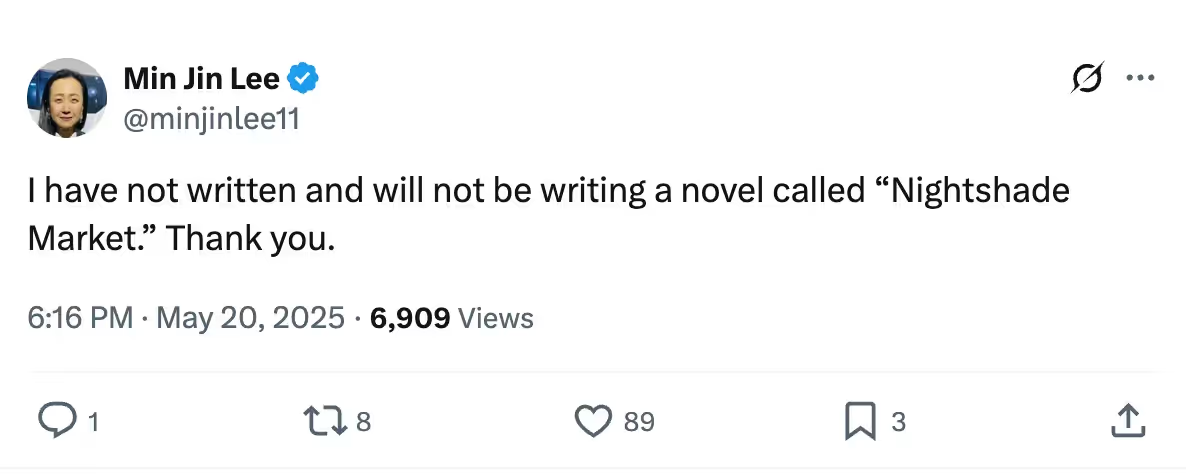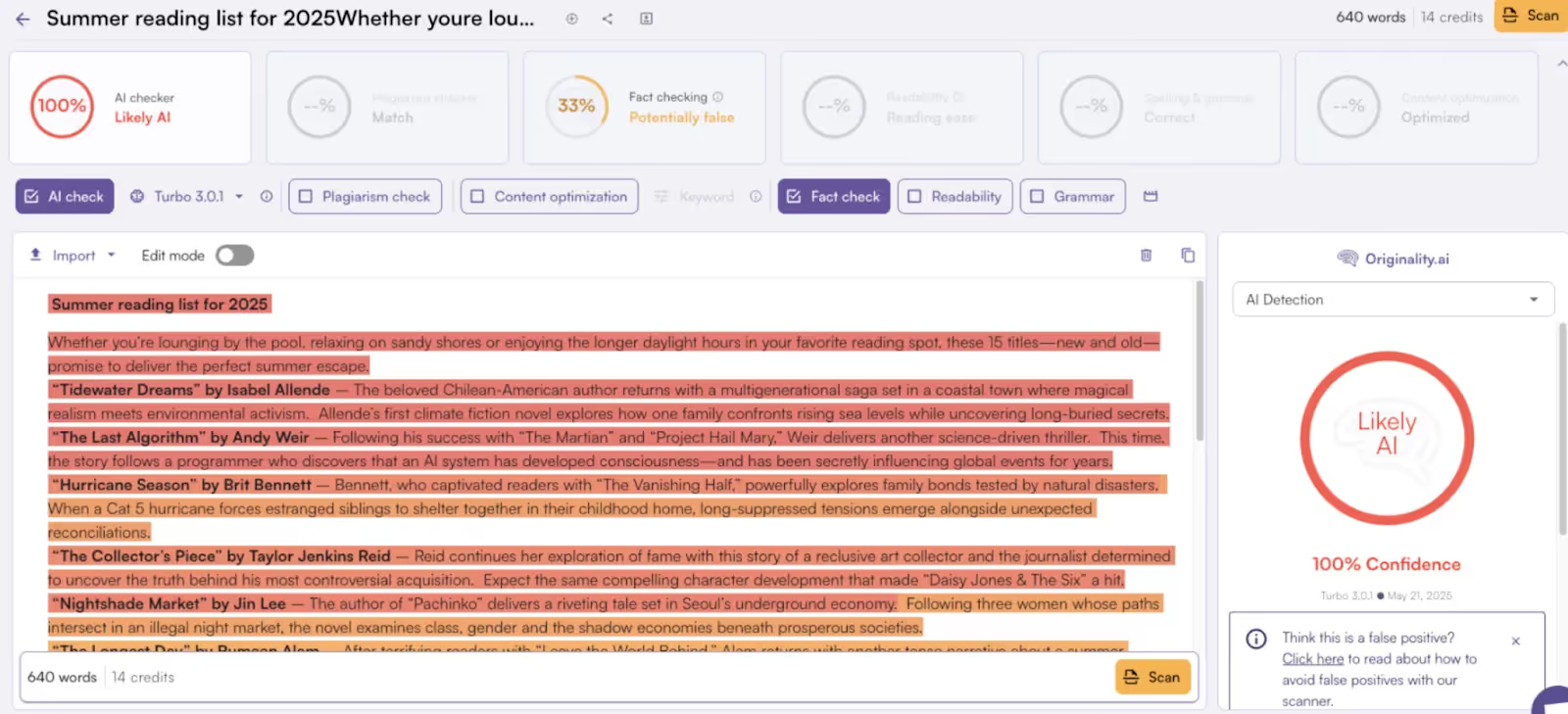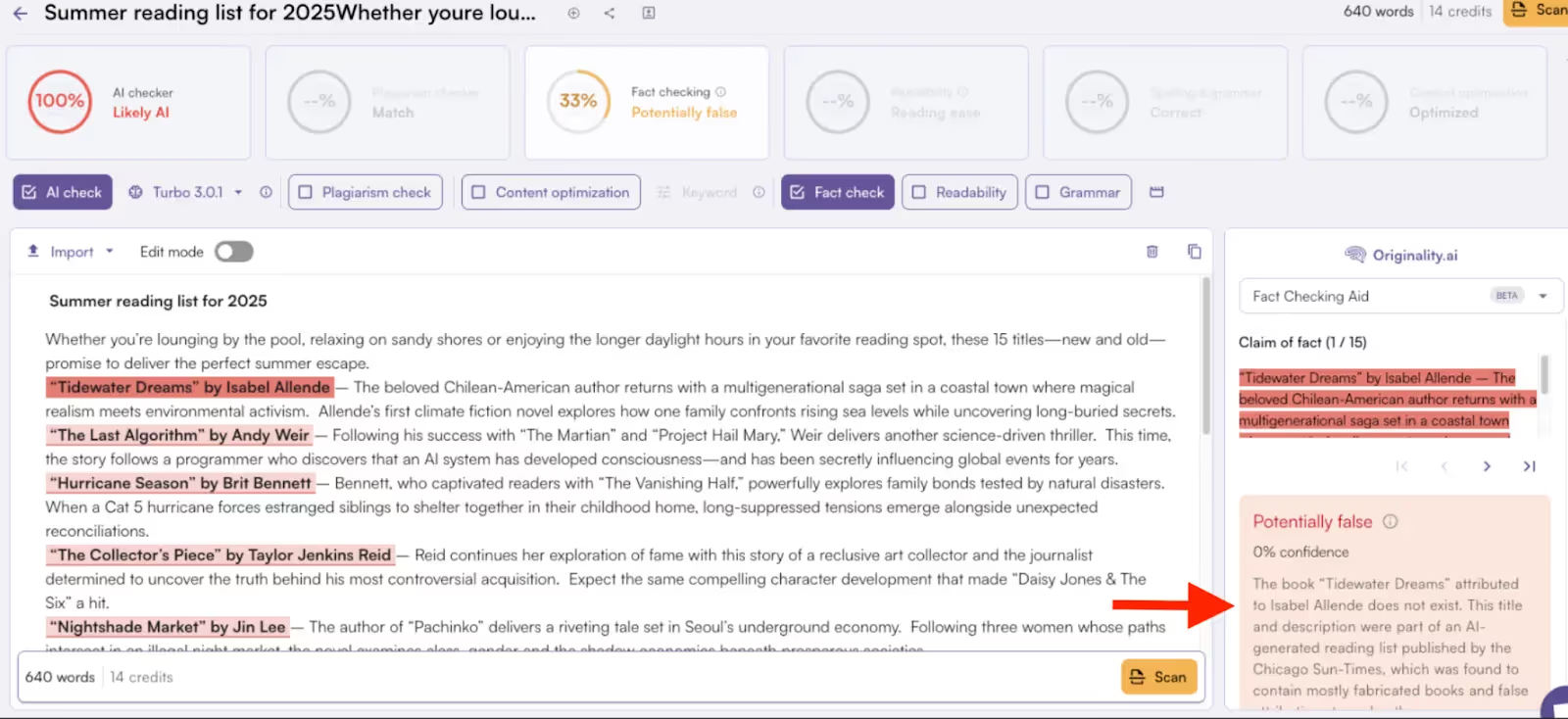Several newspapers in the USA, including reputable papers such as the Chicago Sun-Times and The Philadelphia Inquirer, have published a summer book list (depicted in the image below) in which the majority of the listed titles do not actually exist.
These books, which are credited to several real and reputable authors, may sound like amazing summer reads — but really, they’re AI hallucinations.

It turns out that the #1 rated book on the list, called “Tidewater Dreams,” by famous Chilean author Isabel Allende doesn’t actually exist and that the “Nightshade Market”, by popular authors Min Jin Lee, was never written.

Moreover — only five of the 15 titles on the published list are real.
At Originality.ai, this kind of story gets our attention because it shows the real-world consequences from brand reputation damage and the clear breach of journalistic integrity that underscores exactly why we built our tools — to give editorial teams the ability to verify their content and protect their integrity.
Absolutely! Had a quick and simple scan using Originality.ai’s patented technology been conducted on this content prior to publication, this would have caught the problem by leveraging both the AI Detection Feature and the Fact-Checking Feature.
Had this list been run through Originality.ai, the whole mess could’ve been avoided in under 30 seconds…. Our tool would have flagged the AI-generated text and fact-checked whether the books even existed.
The cost?
14 cents.
Yes, you read that right FOURTEEN CENTS to protect a publication’s credibility, avoid public embarrassment, and uphold basic journalistic standards.
We’re genuinely puzzled why major editorial teams are still skipping this step when the solution is fast, cheap, and literally built for them?
Our industry-leading AI Detector accurately flags AI-generated text across a massive subset of LLMs (Large Language Models). It works by leveraging supervised learning of a carefully fine-tuned large AI language model.
We’ve built our own LLM, and then we feed this model millions of carefully selected records of known AI and known human content. It has learned to recognize patterns between the two with 99% accuracy.
AI Detection scans are useful for checking website and blog content, student essays, and in this case, our AI Checker would have flagged this book list as Likely AI with 100% Confidence. There’s no wiggle room for misinterpretation here.

Originality.ai’s patented Fact Checker is a real-time, accurate fact-checking aid that helps you reduce false facts and avoid AI hallucinations, so you can publish content with integrity.
We scanned this book list using our fact-checking software, which immediately highlighted and flagged all of the fictitious books in question and clearly stated that they did not exist.

Check out the full scan here: Click here to view the public scan results
It’s 2025 — the internet is being flooded with AI-generated content.
The damage control that the publications now face due to this mishap seems disproportionate to the accessibility and affordability of content validation tools built specifically to prevent situations like these.
It’s clear: a quick check could have saved time, embarrassment, and credibility.
If you are a journalist, an editor, a publisher or a content marketer and want to avoid situations where your credibility and integrity are jeopardized, start using Originality.ai today.
Interested in reading more about AI? Check out our AI Studies.

MoltBook may be making waves in the media… but these viral agent posts are highly concerning. Originality.ai’s study with our proprietary fact-checking software found that Moltbook produces 3 X more harmful factual errors than Reddit.